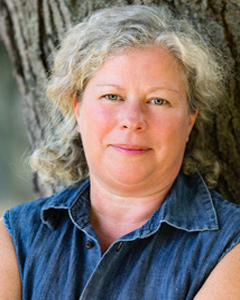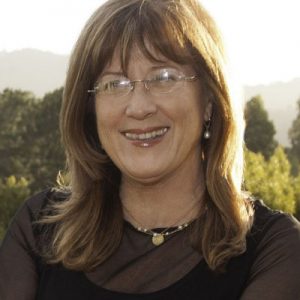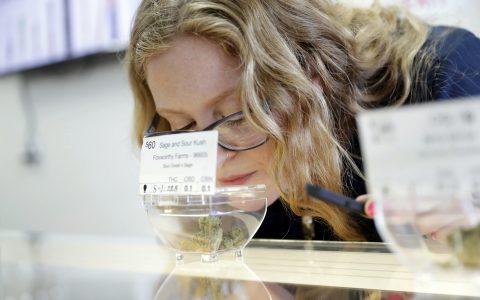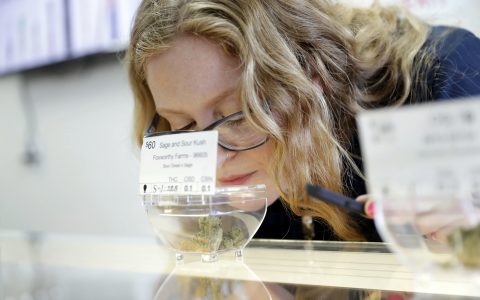To succeed in capitalism, you need capital.
Unfortunately, women and people of color historically don’t have equal access to large sums of money.
Investment capital isn’t spread equally. That’s where Treehouse Global finds its financial advantage.
That makes it difficult to build and scale up a business. This is especially true in the cannabis industry, where most banks and traditional lenders still refuse to work with companies that remain technically in violation of federal law.
The existence of this pronounced funding gap has also inspired a team of experienced investors to create Treehouse Global Ventures. Treehouse is a women-led private equity firm focused on investing in cannabis companies founded by women and minorities.
For the firm’s founders, it’s a way to give these traditionally disadvantaged groups a fair shot at success in a still emerging industry—and a way to find smart investments. Among their early investments are LucidMood, the women-and-wellness focused cannabis products company; Kind seed-to-sale software; and Stem Holdings, a cannabis-focused retail property company.
Adding a Superstar: Maria Rodale
Treehouse has been active for about six months, quietly seeding companies in the cannabis space.
 Maria Rodale: Organic culture entrepreneur and media powerhouse. (Photo courtesy Treehouse Global)
Maria Rodale: Organic culture entrepreneur and media powerhouse. (Photo courtesy Treehouse Global)
But recently the firm made its first big public splash, adding the noted publisher and organic culture icon Maria Rodale to their advisory board. Rodale, the former chairman and CEO of Rodale Inc., the global health and wellness media company, joins Poseidon Asset Management co-founder Emily Paxhia and MTech Acquisition CFO Tahira Rehmatullah to form Treehouse’s powerhouse trio of senior advisors.
By creating a female-focused powerhouse of experts on cannabis and finance as well as consumer-based wellness and lifestyle trends, Treehouse hopes to change the political culture of venture capital. “There is a shift that needs to happen in political will and the male-dominated distribution of wealth,” Treehouse’s Gaynell Rogers told Leafly recently. She and her co-founders are working to make that change happen.
The Original Dream Team
The seeds for Treehouse were planted when Lindy Snider, Gaynell Rogers, and Lori Ferrara met while attending cannabis conferences in the early 2010s. Each woman had a proven track record of business success.
Gaynell Rogers, co-founder, Treehouse Global
Snider held senior-level roles in elite sports and entertainment organizations, including the Philadelphia Flyers. Ferrara, based in Chicago, managed syndicated television operations for shows including Jeopardy, Inside Edition, and The Oprah Winfrey Show. Rogers, working in Northern California, enjoying a wide-ranging career in publicity and media relations, with clients including cannabis pioneers Harborside Health and The Arcview Group.
With much in common—including holding leadership positions in male-dominated industries, and dealing with a cancer diagnosis for themselves or their partners—the three women initially bonded over their shared interest in breaking through the “grass ceiling.”
“As I became more literate in the industry and started investing successfully in it, I ended up spending an inordinate amount of time advising and helping other people navigate the space,” Snider told Leafly in a recent interview. “Gaynell and Lori were having the exact same experience. It dawned on us that we had the know-how, we ourselves were investors, and we were all frustrated by a pronounced lack of funding for women-founded companies.”
“Lindy, Lori and I have been mentoring, coaching and co-investing together for almost seven years as friends and members of Arcview,” added Rogers. “We have a history of fostering good solid investments.”
So the three officially formed Treehouse late last year.
The Funding Gap
The three entrepreneurs and financiers have been around long enough to see cycles of change in the cannabis industry. In 2010, along with Steve DeAngelo and Troy Dayton, Rogers helped found The Arcview Group, the cannabis investment and research company.
As more mainstream investment entered cannabis, female leadership actually fell by nine percent. That’s no coincidence.
“It’s a different environment now compared to when I entered the industry,” she says. “Arcview started with only 12 people. Now it’s a network of over 600 accredited angel investors.”
That growth has been mostly positive, though it brings its own kind of change. In the early years, Arcview investors were noted risk-takers. Many of them came from the cannabis industry themselves and used the network as a way to re-invest their profits to grow their own industry. Newer investors today tend to come from more traditional sectors.
“In just the last two years, the way people are investing has changed because of the types of new investment that’s entering the space,” says Rogers. Those investment groups “are frankly more male dominated, including Wall Street and institutional banking.”
In fact, a survey done by Marijuana Business Daily found that the number of women in leadership positions in the cannabis industry actually fell by 9 percent from 2015 to 2017. According to an article in Green Entrepreneur, the legalization of recreational, adult-use cannabis played a role in this shift by prompting an influx of investment dollars from capital markets dominated by men.
Their Market Advantage
The founders of Treehouse see this failure to fund women-led companies as an opportunity for them to discover and support undervalued talent.
“New perspectives have driven this industry from the beginning,” Snider says. “When female founders don’t get funding, we miss out on strong brands and innovative ideas. Women founders are hard workers with a lot of determination and drive, coming from valuable backgrounds in finance, business, marketing and branding.”
Rodale: Deep Wellness Roots
The addition of Maria Rodale to the Treehouse advisory board brings the hint of expanding the firm’s investments in the cannabis wellness space. Primarily focused on her mission of promoting the health and societal benefits of small organic farms, Rodale is the author of many books, including the Organic Manifesto, How Organic Farming Can Feed Our World, Heal Our Planet and Keep Us Safe, and Scratch, Home Cooking for Everyone Made Simple.
She’s also heir to an important legacy.
Maria Rodale, Treehouse Global advisory board member
Rodale’s visionary grandfather kickstarted the organic foods and farming movement in the 1940s by creating the Rodale Institute and writing Pay Dirt, a book linking chemical agriculture to human health issues. Her father built on this legacy of activism by pushing the government towards organic certification of foods in the 1990s. She and her family expanded Rodale into a book and magazine publishing powerhouse, then exited with the sale of the company to the Hearst Corporation in 2017.
The rapidly evolving cannabis marketplace lends itself to comparisons with the organic food market, which gained traction in the 1970s as a niche political movement driven by eco-conscious hippies and has since grown into a $50 billion dollar industry. According to Green Entrepreneur, “women make 90% of household healthcare decisions in the $4.2 trillion dollar wellness market” as consumers, so having female leadership designing products and services is essential to driving sales and further normalizing cannabis as a tool for wellness.
Meanwhile, working with Treehouse dovetails nicely with Rodale’s past experience advocating for small farmers, environmental sustainability, and consumer’s rights to access safe, healthy food. She says she’s most excited about the potential of CBD and hemp. Research conducted by the Rodale Institute has shown that organically grown hemp could offer a viable alternative to small farmers currently getting squeezed out of more traditional markets.
“Farmers are stuck in a corn/soybean rotation that’s not making them any money,” Rodale says. “Hemp can be a part of that rotation or a complete shift for them. It’s a lot more of a useful crop than corn and soy are right now and it can make them a lot of money.”
“I’m excited about joining a new community,” Rodale says, “I love learning new things, so learning about the plants, the people and the science and research is really exciting to me.”
Distinctive Stake in the Ground
Private equity firms in practice don’t usually fund start-ups—that’s more the purview of angel investment groups like Arcview. Treehouse is primarily looking for established companies with strong brand recognition that need financial assistance to scale up. “We are currently in an active raise—and as many know, you don’t just invest in the idea, you invest in the leadership team,” Rogers says. “We’re looking all over the country for companies that already have a distinctive brand stake in the ground.”
 Rogers: making shift happen.
Rogers: making shift happen.
Interested minority and female founders can contact Treehouse through their online portal. If the initial application seems promising, next steps include signing a mutual non-disclosure agreement, then proceeding to a review of a financial pitch deck. If the Treehouse partners decide to invest, they will write up a term sheet and start due diligence, which can take from six weeks up to several months.
Qualified applicants need a forward-thinking marketing and branding plan that looks two to four years into the future of the industry.
Pro tip: Be realistic.
“Over-projecting is the number one mistake most people make,” Rogers says. “You can tell when people really know what they’re talking about in regards to realistic scale when you look at their projections. For us, the proof is in the pudding. We’re looking forward to two to five years from now, once our companies are soaring and we make some exits. That’s when we’ll be able to say we’re contributing to this important cultural shift.”





